March 25 - May 14, 2024 STAGES Community Partner Workshop Series
STAGES partners lead a series of mini workshops where they presented to the STAGES trainees and faculty about their organizations' missions, research interests and needs, and available datasets. The trainees explored the proposed research questions and identified three projects to pursue for their STAGES group projects. The trainees presented their project prospectuses to the STAGES partners and faculty at the May Community Partner Workshop.
The Workshop Series schedule and recordings are below:
STAGES Trainees and Faculty met several times to discuss the Partner presentations and proposed research topics before settling on three possible projects: 1) assessment of giant manta ray population dynamics using satellite imagery (primary partner: NOAA Fisheries Species Conservation Branch Southeast Region), 2) assessment of shorebird habitats using satellite imagery and land use land cover data (primary partner: Coastal Bend Bays and Estuaries Program), and 3) assessment of water quality and bacteria loading in coastal waters near Matagorda Bay (primary partner: Texas General Land Office).
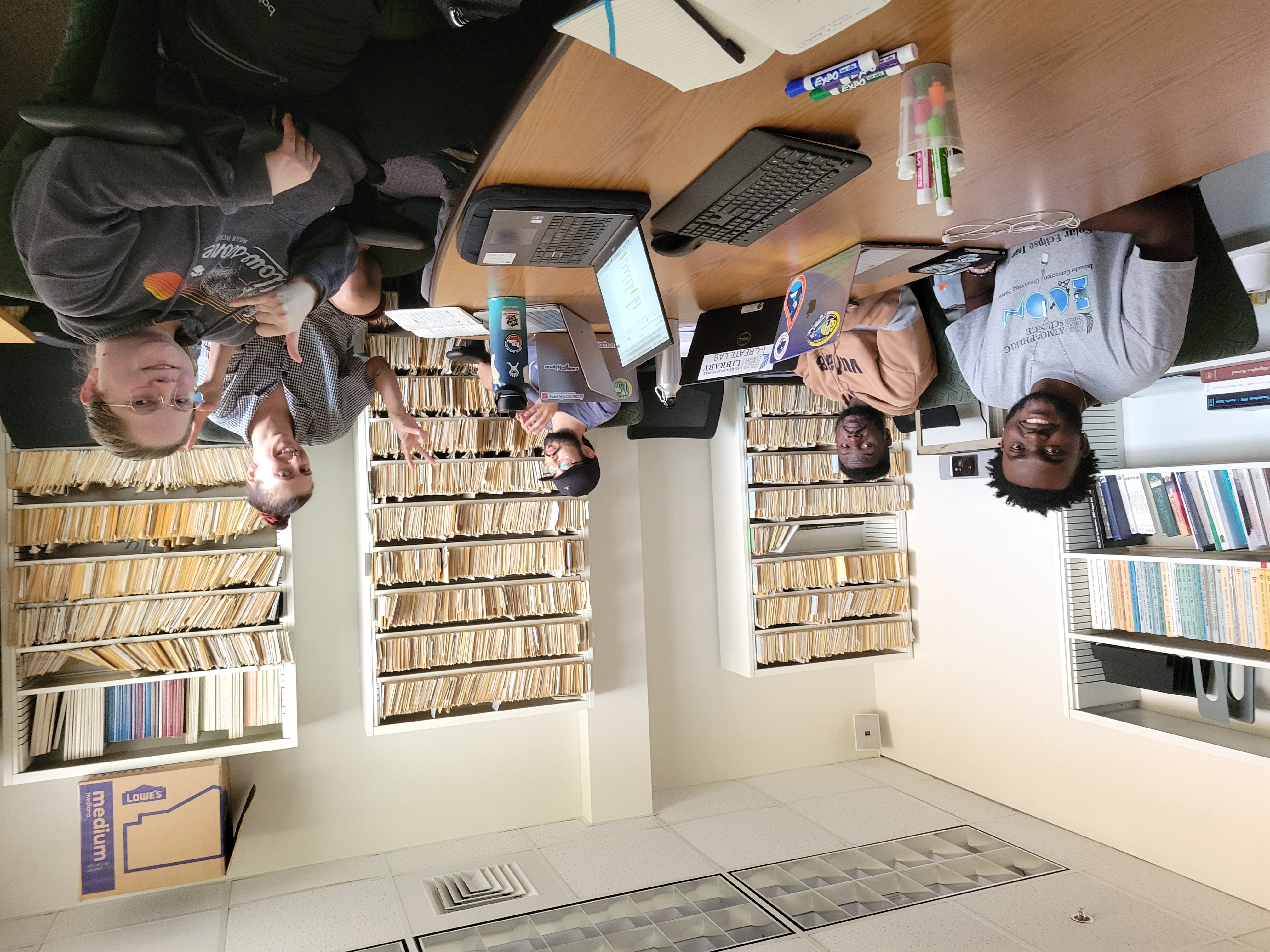
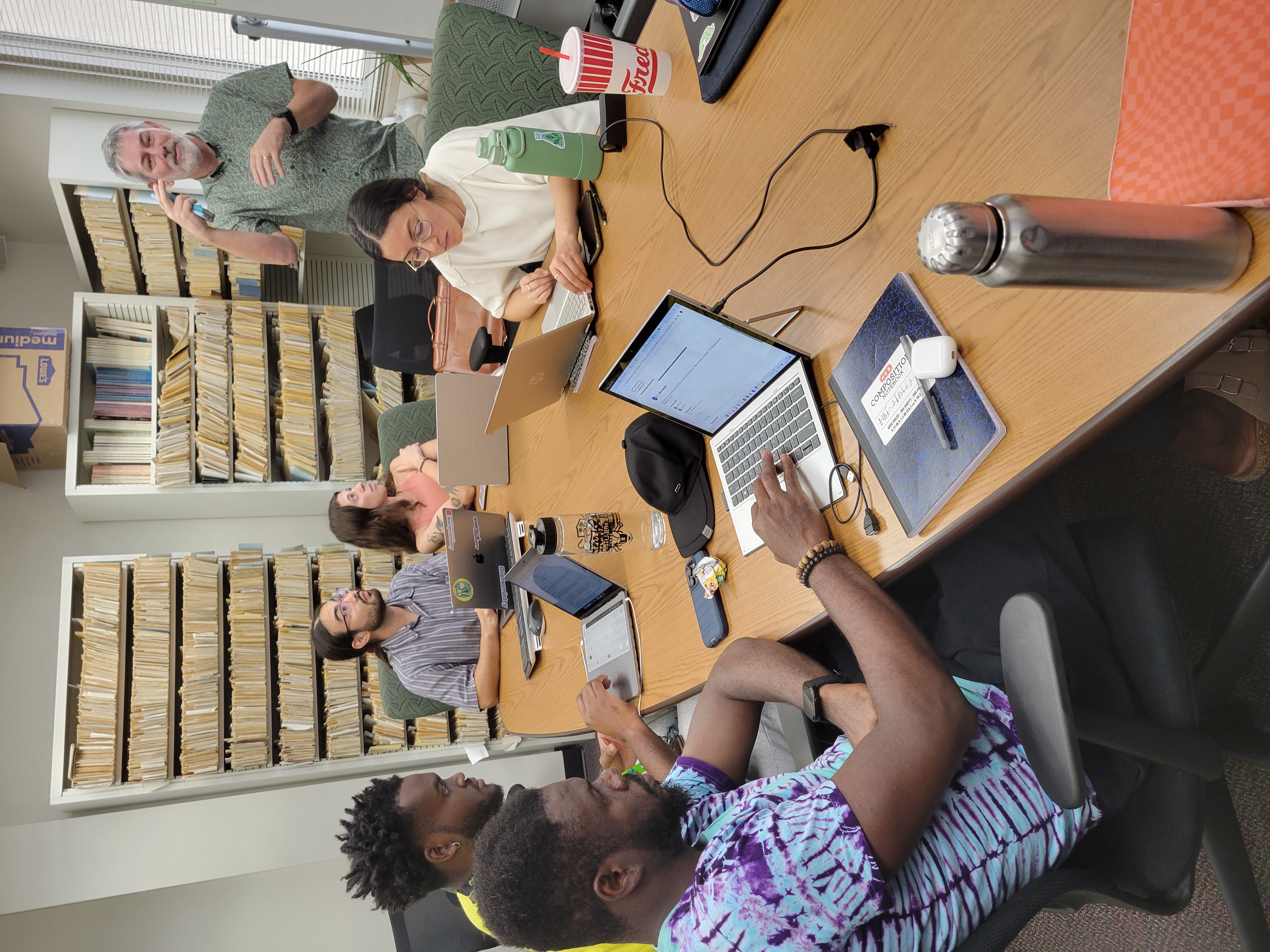
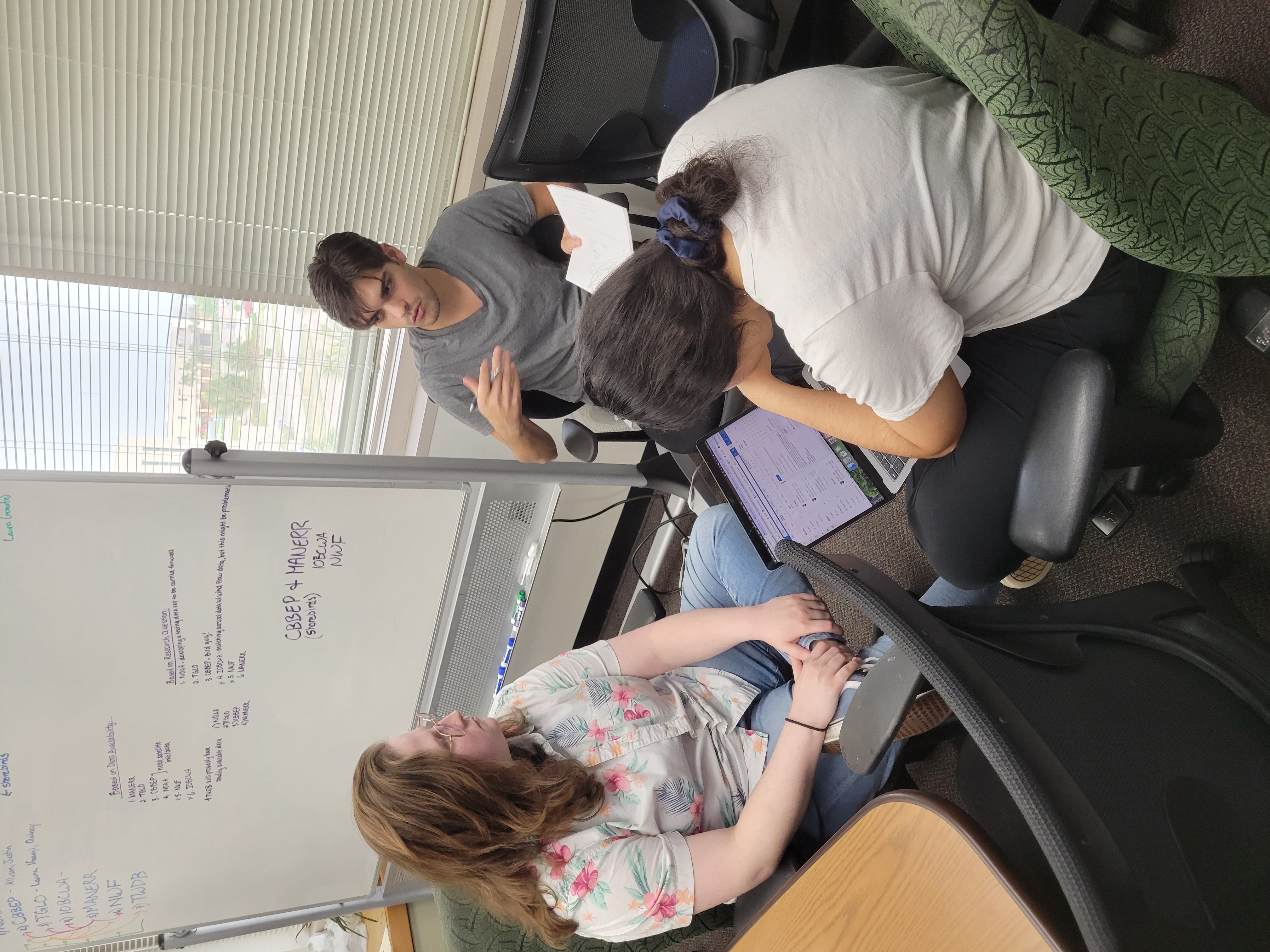
Abstracts of the STAGES trainees' project prospectuses were provided to the Partners before the big STAGES Community Partner Workshop (left).
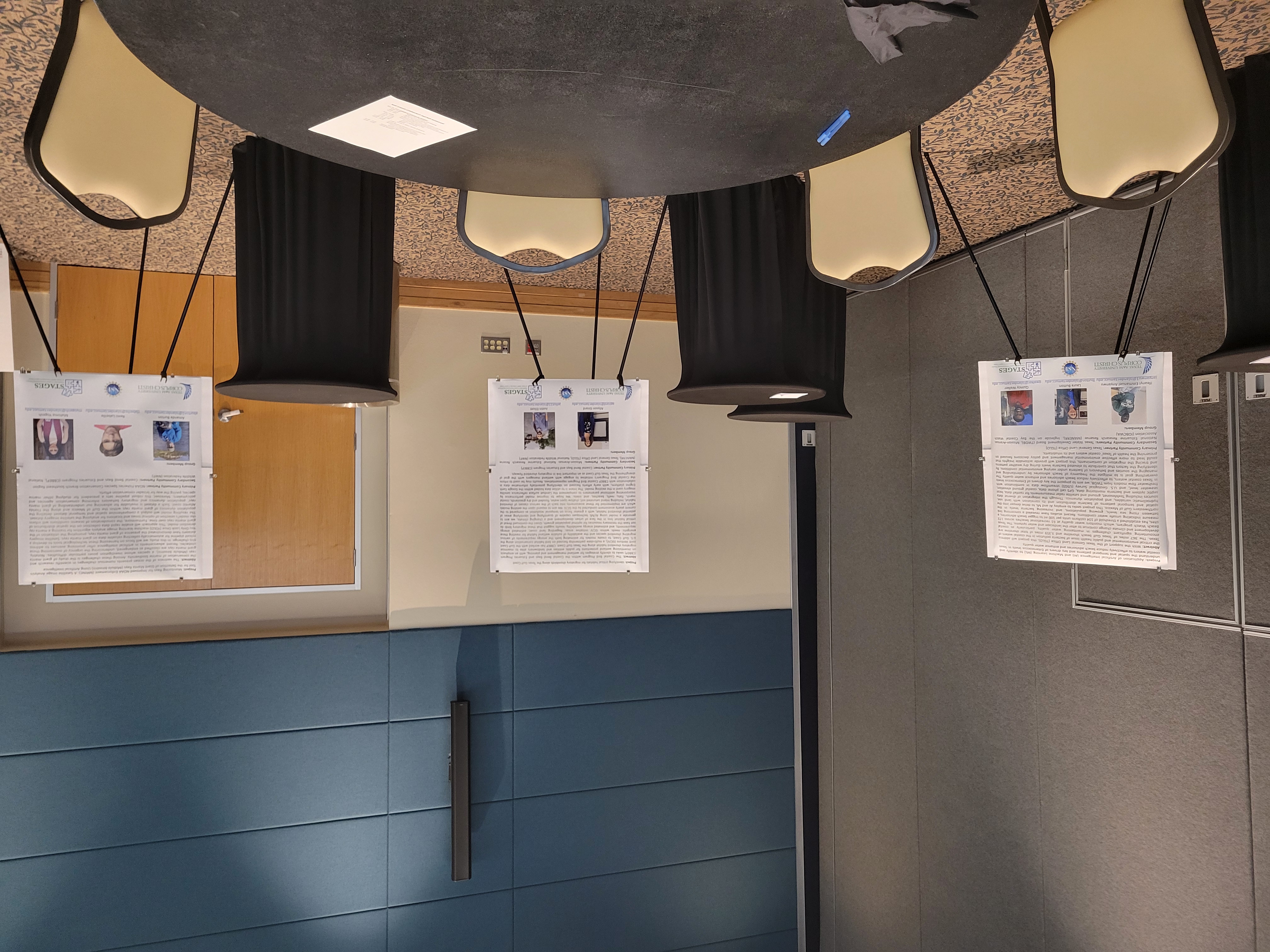
Each trainee group presented their project prospectuses and answered questions from the room in the morning followed by breakout groups for each project in the afternoon (left: giant manta ray project breakout group, right: shorebird habitat breakout group).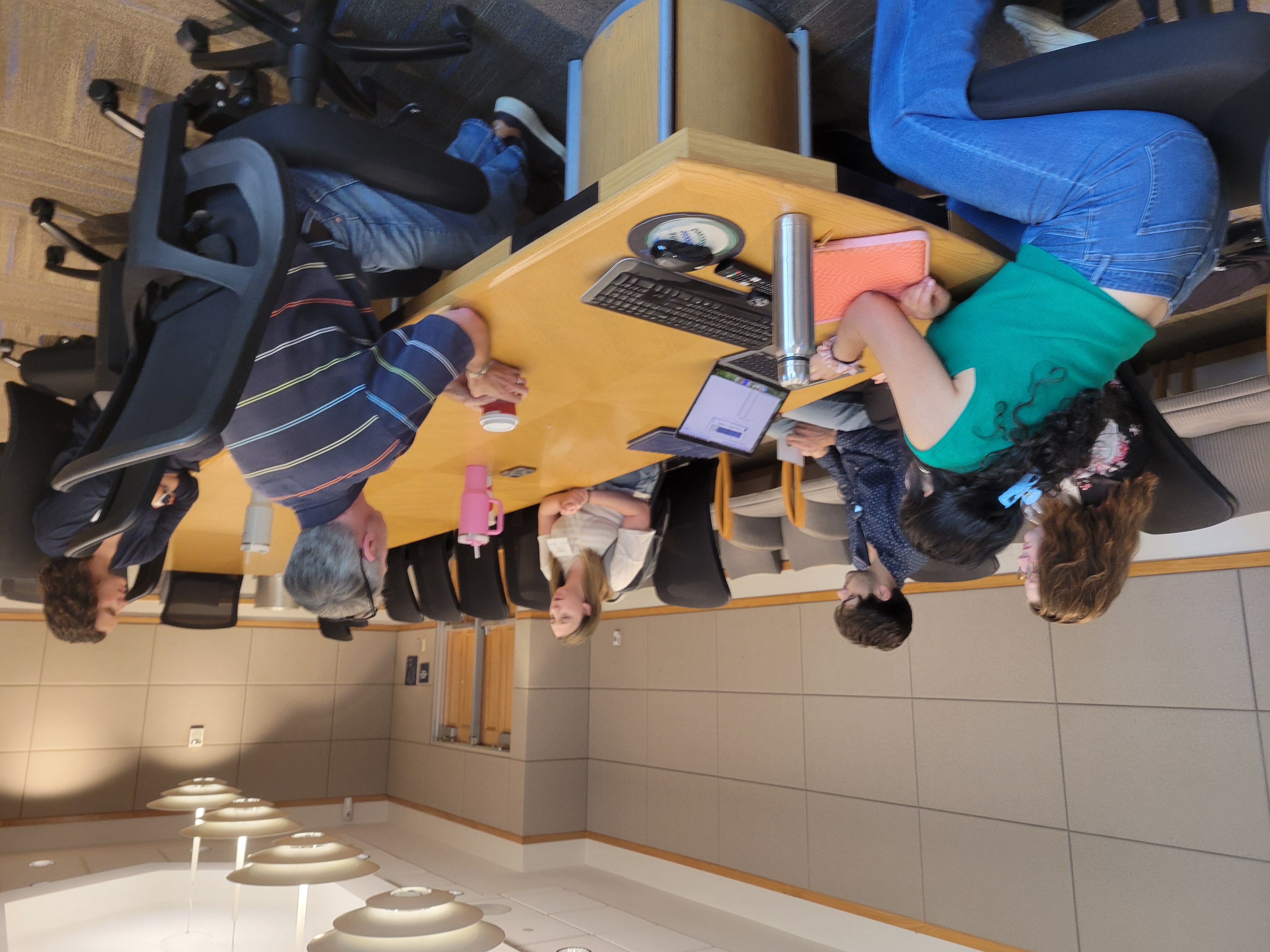
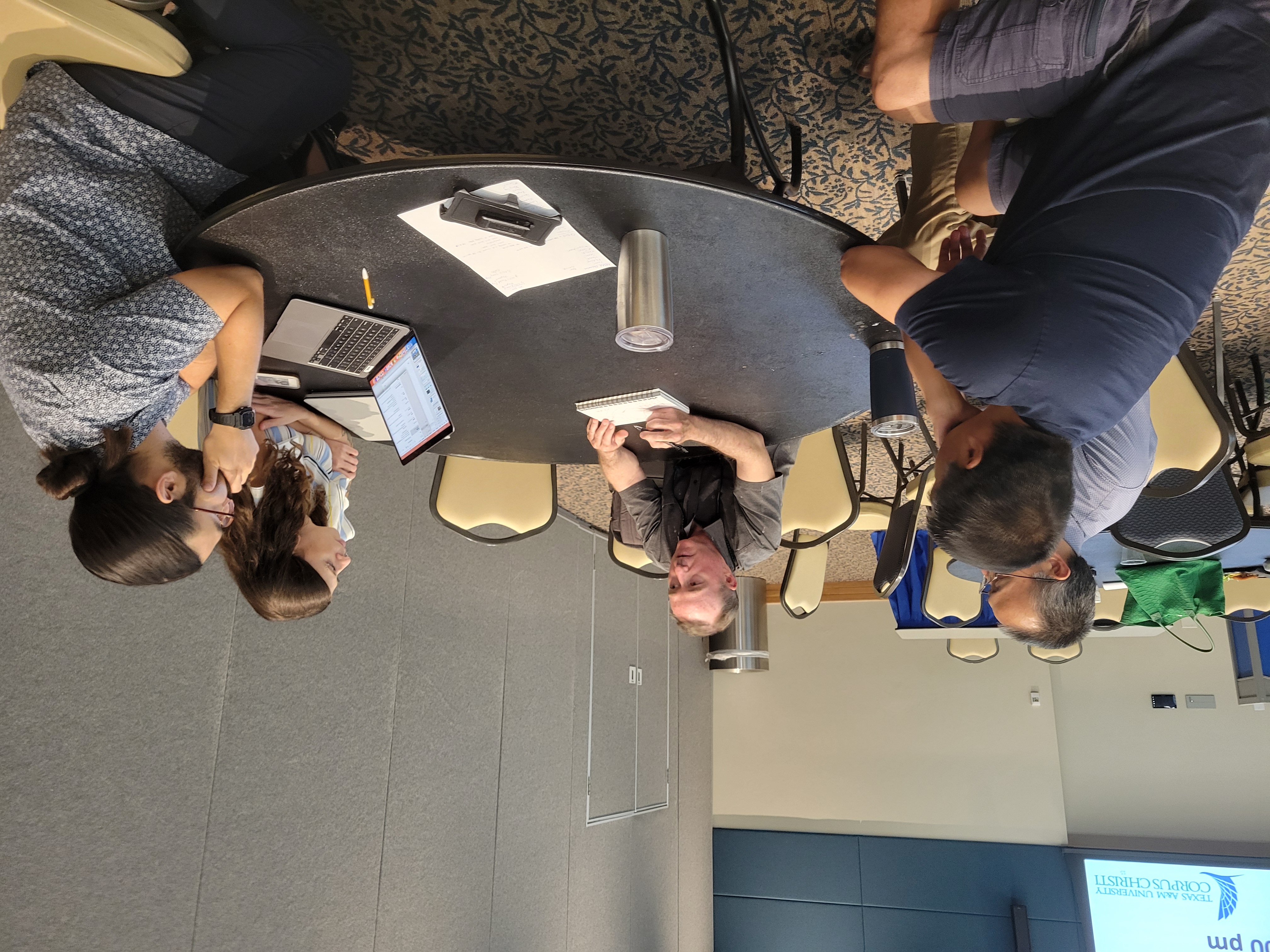
May 2024 Congratulations to our recent and upcoming STAGES graduates on their successful job searches. Makayla Guinn (left) has started a Marine Biology PhD program at Texas A&M University-Corpus Christi under Dr. Dara Orbach. Madison Riba (center left) has joined the Texas Railroad Commission as a Data Analyst with the Critical Infrastructure Division. Hailey Santa Ana (center right) will be joining the Fleet Numerical Meteorology and Oceanography Center in Monterey, CA, as a meteorologist. Skylar Meehan (right) has accepted a position as a hydrologist with the TexMesoNet at the Texas Water Development Board (a STAGES partner).




May 2024 Congratulations! STAGES trainee Hailey Santa Ana successfully completed her MS in Coastal and Marine System Science. We are proud of your accomplishments.

April - May 2024 Congratulations to Miranda White who successfully defended her dissertation proposal on "Development of use-inspired, trustworthy machine learning and associated uncertainty quantifications for enhanced stakeholder decision-making during cold-stunning events in Laguna Madre, TX" and passed her qualifying exams to advance to candidacy. Keep up the great work!

March 22 - 24 TAMU-CC Graduate and Undergraduate Students Go On Headwater to the Ocean (H2O) Field Trip.
After two months of thoughtful planning and group discussion, a group of students (15 graduate students, 1 undergraduate student), faculty and staff embarked on a three-day field trip from the headwaters of the San Marcos River to San Antonio Bay. The trip started with an educational tour of Canyon Lake Gorge (https://canyongorgetours.com/) where the group learned about central Texas geology, hydrology of ground and surface water, human impacts on the environment, biological succession, and got introduced to area plants and animals. During the 3-hour hike through the Gorge, the group saw fossilized dinosaur footprints and marine fossils from the Cretaceous period, surfacing faults, and groundwater flowing out of the ground.





Photo (left to right): [top row] Aneena Raju, Mahima Yogesh (STAGES trainee), Meghan Bygate, Dr. Audrey Douglas (STAGES program coordinator), Laura Button (STAGES trainee), Amanda Burton (STAGES trainee), Joy Brown (CWSS Research Assistant), Teddy Murgulet, Muhamed Elshalkany, Kayla Dye, Remi Labeille (STAGES trainee), Justin Elliott (STAGES trainee), Bea DiBona (STAGES peer mentor), Olivia Burnes, Ifeanyi Emmanuel Anyanwu (STAGES trainee), Cat Corrales, Dr. Valeriu Murgulet, Cody Lopez, Dr. Ingo Pecher, [bottom row] Mckenna Reinsch, Dr. Xinping Hu (STAGES co-PI), Dr. Dorina Murgulet (STAGES PI), Allyson Girard (STAGES trainee).
After Canyon Lake Gorge, the group drove to the Spring Lake Natural Area for a guided tour of a riparian wetland, a glass bottom boat tour, and to start sample collections at the headwaters of the San Marcos River. While on the tours, the group saw a beaver dam, a cooter turtle nesting, a mature spotted gar, and both high velocity (spitting sand) and low velocity (looks like bubbling sand) groundwater springs.




Over the three-day field trip, the students collected samples for water quality, dissolved organic matter, and bacteria analysis from 15 sampling sites from Spring Lake down to San Antonio Bay. The group camped at Palmetto State Park the first night and Coleto Creek Park the second night. Throughout the trip, the students taught each other how to collect field samples, filter samples for bacteria and chlorophyll-a, and run radon samples on a RAD-7 (Durridge, Inc.). The students also found time for fun and enjoy each others company around the camp table, roasting s'mores at the campfire, and at an end of trip group lunch.








Credit: All photos taken by Dr. Audrey Douglas, Bea DiBona, Cat Corrales, Mahima Yogesh, and Muhamed Elshalkany and used with permission.
February - March Students gather for weekly meetings to plan and prepare for the H2O field trip. Topics discussed included safety, sample collection and processing, sample sites, roles and responsibilities, supplies, and field methods for collecting and processing different types of samples.


December 2023 Congratulations to Youwen "Alice" Wang who successfully defended her dissertation proposal and passed her qualifying exams to advance to candidacy. Keep up the great work!

December 16, 2023 Congratulations! STAGES trainees Makayla Guinn and Madison Riba successfully completed their MS in Marine Biology and Mathematics, respectively. We are proud of both of your accomplishments.


December 1, 2023 NRT STAGES welcomes our second cohort of trainees at orientation. Our trainees represent three degree programs: Coastal and Marine System Science, Marine Biology, and Chemistry.
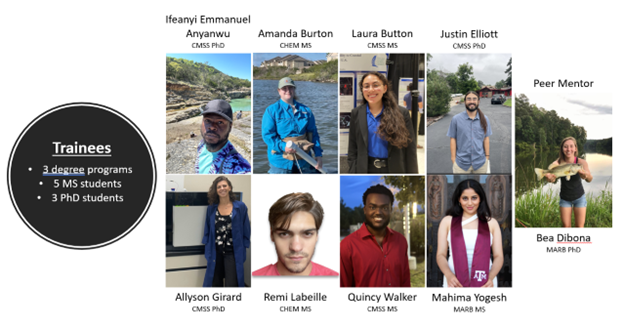
December 1, 2023 TAMU-CC Graduate Students present their STAGES projects to their stakeholders/community partners and TAMU-CC administration, faculty, staff and students. Recordings of both presentations may be found on the STAGES @ TAMUCC YouTube Channel:
November 1, 2023 STAGES trainees journey up to Austin, TX, for the Texas Water Development Board's Career Fair.

October 29-31, 2023 STAGES Program Director, Program Coordinator, evaluators, and trainee representative, Bea DiBona, travel to Tempe, AZ, to participate in the NRT Annual Meeting. Bea DiBona presented a poster for her STAGES group project at the meeting.


June 26, 2023 STAGES partners, Ingleside on the Bay Coastal Watch Association (IOBCWA), took the trainees on a guided boat tour of Redfish Bay and La Quinta Channel pointing out important landmarks, new spoil islands, and recent industrial development projects. IOBCWA president Patrick Nye and treasurer Jennifer Hilliard lead the tour and provided a brief history of the IOB area. Trainees saw bottlenose dolphins and roseated spoonbills, among other wildlife.

May 16-17, 2023 TAMU-CC Graduate Students and Faculty Meet With Stakeholders to Co-Develop Research Questions
STAGES trainees and faculty met with representatives from the Texas Water Development Board, Mission-Aransas National Estuarine Research Reserve, Ingleside on the Bay Coastal Watch Association, the Port of Corpus Christi Authority, the Meadows Center for Water and the Environment, the Calhoun County Extension Agent for Texas Sea Grant, and the National Weather Service in Corpus Christi to discuss each stakeholder groups interests and needs concerning the resiliency of our coastal communities. Trainees and stakeholders broke out into smaller groups for more detailed conversations and co-development of research questions relating to (1) predicting rainfall, temperature, and flooding, and (2) ecosystem health with a focus on anthropogenic influences on seagrasses and fisheries. The trainees will spend the next 5 months working on the research questions developed at the workshop.











Photos (top left to bottom right): (1) Group photo of workshop attendees with Dr. Dorina Murgulet. (2) Group photo or workshop attendees with Dr. Jennifer Beseres-Pollack. (3) Jace Tunnell, Mission-Aransas National Estuarine Research Reserve, presents. (4) Patrick Nye and Jennifer Hilliard present virtually for Ingleside on the Bay Coastal Watch Association. (5) Christina Lopez presents virtually for the Meadows Center for Water and the Environment. (6) RJ Shelly, Calhoun County Extension Agent, presents. (8) Penny Harness presents virtually for the National Weather Service in Corpus Christi. (9) Evan Turner, Texas Water Development Board, presents. (10) Interactive Q&A session after presentations. Evan Turner answering a questions from a trainee. (11) Breakout group discussions between stakeholders (Timothy Humphrey, NWS, pictured), trainees (EvaLynn Jundt pictured), and faculty (Philippe Tissot and Maria Vasilyeva pictured). (12) Trainees report out on their group discussions and co-developed research questions (Miranda White pictured). Credit: photos provided by Drs. Audrey Douglas and Jennifer Beseres-Pollack.
April 28-30 TAMU-CC Graduate Students Go On Headwater to the Ocean (H2O) Field Trip
As the sun sets, a group of students at a campsite in Garner State Park try to set up a tent for the first time. The task is further complicated by 30 mile per hour wind gusts from a weather system moving through the region. Once the initial frustration of setting up the tents is over, the students can settle back into the exhaustion following a long day of travel and field sampling and embrace the enthusiasm they feel for the coming days, which will be filled with more hands-on learning and camping as part of the Headwaters to the Ocean (H2O) field trip for the NSF Research Traineeship for Stakeholder-Guided Environmental Science (STAGES).
The 3-day H2O field trip was led by Drs. Dorina Murgulet (STAGES Program Director), Xinping Hu (STAGES Co-PI), Valeriu Murgulet, and Audrey Douglas (STAGES Program Manager) with the goal of assessing the health of the Nueces River from the headwaters in Edwards County, Texas, to Nueces Bay and to demonstrate to the students how terrestrial, coastal, marine, and atmospheric processes are interrelated.

Credit: Site map created by Hailey Santa Ana (STAGES trainee) and Audrey Garza.
Participants included TAMU-CC graduate students from the Coastal and Marine System Science and Marine Biology programs. In the months leading up to the field trip, the students worked together to design a field campaign to assess the health of the river and identify some parameters that may indicate human impacts to the system by drawing on their varied experiences and expertise. The students identified 24 possible sampling locations and proposed collecting the following samples/data at each site: water quality (including temperature, salinity, dissolved oxygen, pH, and nutrients), chlorophyll, groundwater tracers (radon & radium), stable isotopes (δD, δ18O, δ13C), carbon chemistry (total alkalinity, dissolved inorganic carbon, pH), microplastics, aerosols (including CO2, particulate matter > 0.5,1,2.5,5,10 microns, pressure, relative humidity), invertebrates, and geophysics (passive seismics).
The first stop on the field trip was the Rocksprings Visitor Center to meet a volunteer guide for a tour of the Devil’s Sinkhole State Natural Area, created as a National Natural Landmark in 1971 by President Nixon. The Sinkhole was formed slowly over time by water dissolving the karst rock to form a cave. When groundwater levels decreased, the ceiling collapsed from lack of support. The Sinkhole is both the largest one-chamber cave in Texas and the fifth-deepest cave in Texas. Furthermore, the Devil’s Sinkhole is home to one of Texas’ largest colonies of Mexican free-tailed bats and is a restricted access area due to the presence of 4 endangered species (including a native amphipod and the Tobusch fishhook cactus). After the tour, students began collecting samples from the first two of 24 possible sampling sites before heading to Garner State Park to set up camp for the first night.




On the second day of the field trip, the students continued to collect samples and observe the geological influences on stream flow or lack thereof in the Nueces River from Uvalde, Texas to Choke Canyon State Park. Multiple sampling locations were discovered to be dry riverbeds while the previous upstream and subsequent downstream sampling locations had running water. These locations were dry due to lower groundwater levels compared to land elevations whereas the other locations around them had higher groundwater levels, so the stream was supported by groundwater. The students witnessed groundwater discharging from the banks of the river at two locations in the first two days of the trip. On the second night, the students camped at Choke Canyon State Park where deer were grazing freely amongst the tents and RVs, a family of javelinas wandered through the campsite in the middle of the night, and wild turkeys were passing through a meadow on the way to sample the reservoir.


As the trip moved from Choke Canyon reservoir to Lake Corpus Christi to Nueces Bay, the students collected samples and observed the influence of dams on stream flow and the tidal portion of the river. Downstream from the dams, the water of the Nueces River transforms from crystal clear to muddy and cloudy and transitions from an intermittent to perennial stream. Upon returning to campus, the students processed the samples for their respective groups (i.e., water quality, microplastics, aerosols, invertebrates, geophysics) over the next few days and wrote reports on their findings for class.



Photo (left to right): Yusuf Azeez, Derry Xu (STAGES trainee), Dr. Xinping Hu, Laura Ramirez, Mohamed Mousa, Youwen "Alice" Wang (STAGES trainee), Hailey Santa Ana (STAGES trainee), Evalynn Jundt (STAGES trainee), Nigel Lascelle (STAGES trainee), Makayla Guinn (STAGES trainee), Ahmed Omar, Bea DiBona (STAGES trainee), Dr. Audrey Douglas (STAGES Program Coordinator), Dr. Dorina Murgulet (STAGES PI), Miranda White (STAGES trainee).
Credit: All photos taken by Dr. Xinping Hu, Dr. Audrey Douglas, and Youwen "Alice" Wang and used with permission.
March 30 & April 13 STAGES trainees and non-STAGES participants working together to plan the Headwaters to the Ocean (H2O) field trip where they will assess the health of the Nueces River and potential impacts from human (e.g., urban environments, agriculture, dams) and natural disturbances.

Credit: Photos provided by Dr. Audrey Douglas.
January 8-12 Congratulations to Miranda White for winning FIRST PLACE in the student poster competition at the American Meteorological Society's 103rd Annual Meeting in Denver, Colorado. Miranda's poster was on “AI Ensemble Predictions for Cold Stunning Events in the Shallow Laguna Madre".


December 9, 2022 NRT STAGES welcomes our first cohort of trainees at orientation. Our trainees represent three degree programs: Coastal and Marine System Science, Marine Biology, and Mathematics.

 The STAGES program focuses on ensuring the next generation of interdisciplinary environmental scientists are capable of harnessing the data revolution for Stakeholder-Guided Environmental Science (STAGES). This experience will connect innovative research to practitioner and community needs to answer stakeholder-guided questions of regional and national interest.
The STAGES program focuses on ensuring the next generation of interdisciplinary environmental scientists are capable of harnessing the data revolution for Stakeholder-Guided Environmental Science (STAGES). This experience will connect innovative research to practitioner and community needs to answer stakeholder-guided questions of regional and national interest.































































